Practices of quality work and steering go hand in hand
The Quality Policy contains the principles of quality work at UTU and it is available for the UTU community and stakeholders in the Quality Manual, intranet, and UTU webpages. The Steering Group for Quality managed the open preparation of the Quality Policy. The UTU Management Group was involved in the process and the Quality Policy was approved by the UTU Board in March 2022.
The Quality System, steered by the UTU management, consists of practices supporting high-quality activities including academic operational culture, steering, support services, and quality management. The documentation on the quality system is available on the UTU intranet and data systems. For stakeholders, the quality system and the quality procedures are described on the UTU website.
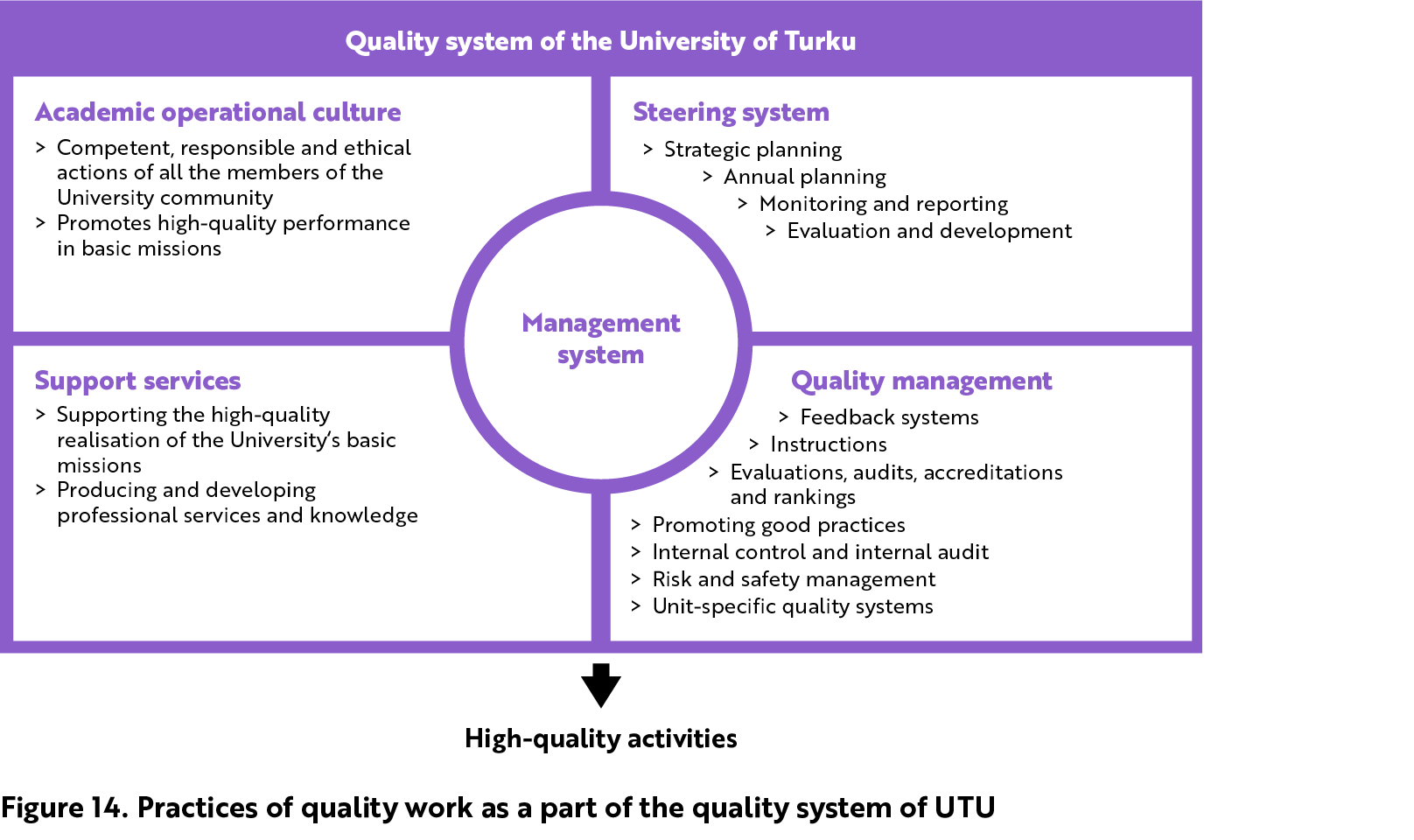
The quality of UTU’s activities is ultimately created with the competent, responsible and ethical actions of all the members of the UTU community. It is essential that the practices, support services, and quality management support and enable the personnel and students to use their expertise in full to carry out the basic missions
The Principles of Steering (approved by the Board) defines the UTU’s steering system and is based on the PDCA cycle. It includes strategic planning, annual planning, monitoring and reporting, and evaluation and development activities.
UTU community is actively involved in the strategic planning
The Rector is responsible for organising the preparation and revision of the Strategy and the Policy Programme. The whole UTU community is heard extensively in the preparation of the Strategy and the views of alumni and external stakeholders are actively mapped. The preparation process for the Strategy 2030 is presented in figure 15.
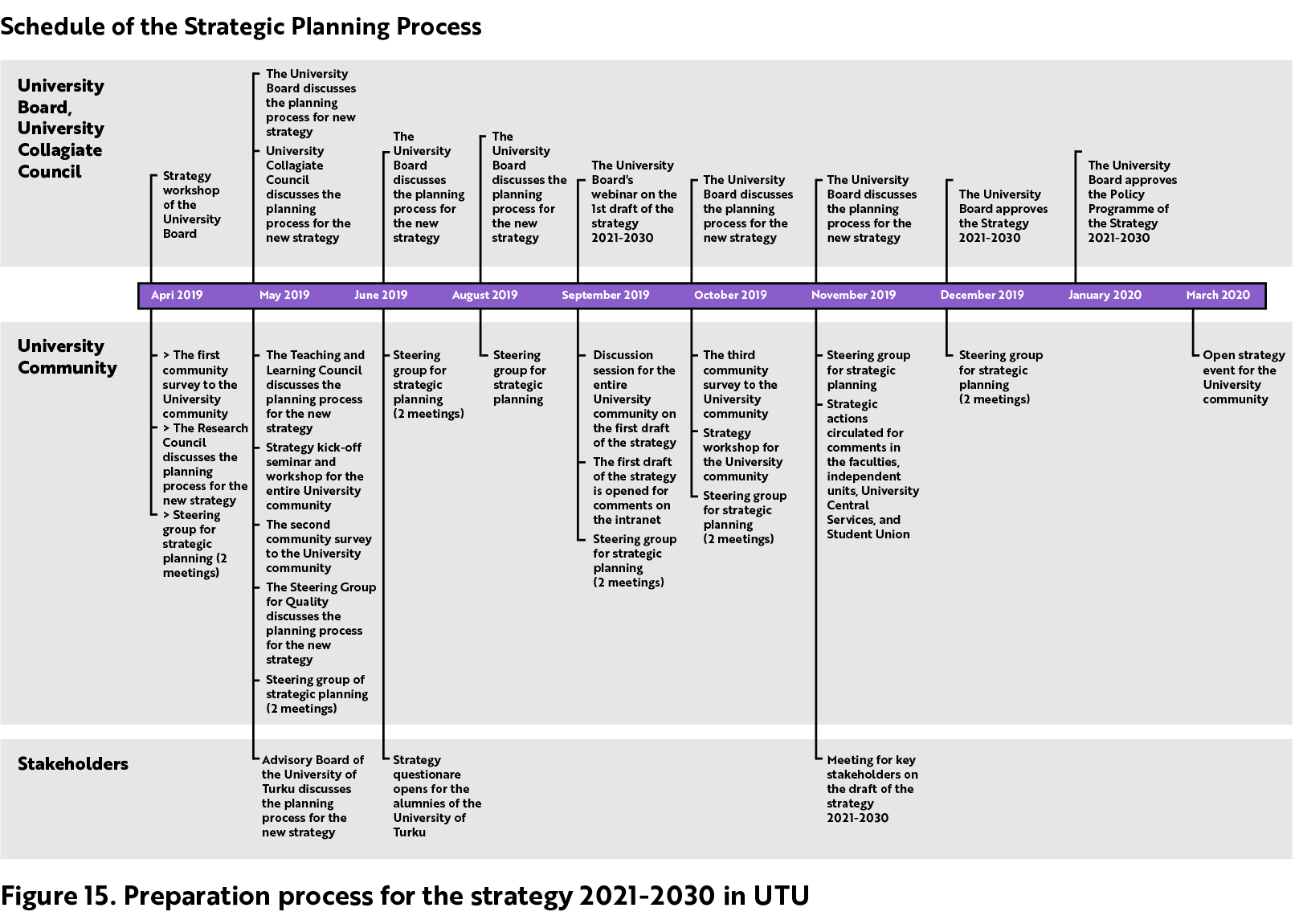
The UTU management and Strategic Planning unit monitors the implementation of the Strategy regularly and reports the implementation to the UTU Board annually. The Policy Programme is regularly followed up on the operational level in faculties and departments. The dean is responsible for implementing the strategy in the faculty and the head of department in the department or corresponding unit. The steering groups and councils promote the implementation of the Strategy and Policy Programme, support the flow of information, and direct and monitor the UTU’s central activities and the quality of operations. The Strategy is updated if needed according to the changes in the operational environment. The Strategic Planning unit, led by the Director of Strategic Planning, coordinates both the strategy process and the quality work practices, which supports the complementary functions of steering and quality.
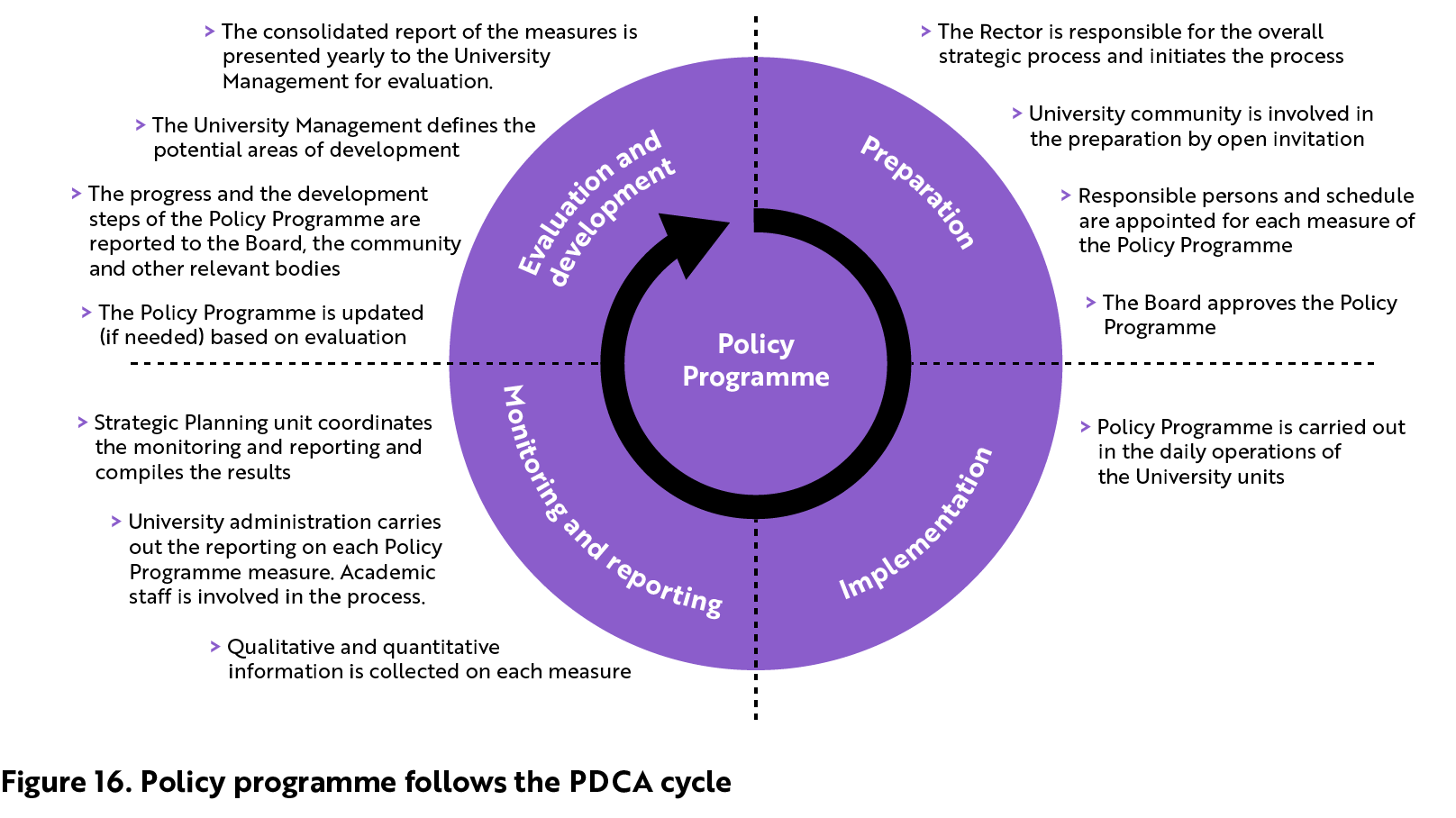
The strategic profiles in the UTU Strategy implement and advance multidisciplinary research and education in UTU Community. The profiles are reported yearly to UTU management. In addition, the Rector provides strategic funding every three years to strategically relevant research and education projects. The progress of the strategic funding activities is reported in the annual reports of the units and evaluated in the annual target negotiations held with the UTU management.
Annual planning follows the structure of the UTU strategy
The annual planning process is an important part of the steering system including all levels and units of UTU. The annual plan consists of the operational, personnel and financial plans. The operational plan follows the structure of UTU’s Strategy and it describes the main activities and areas of development of the units.
The unit’s activities of the previous year are reported in the annual report. The report follows the structure of the annual plan and it analyses the realisation of the planned activities. The annual reports of the units are utilised as information sources in monitoring the realisation of the UTU’s Strategy. The UTU management holds annual target negotiations with the faculties and independent units on the basis of the annual plans and reports. The management gives the faculties and independent units feedback based on the negotiations.
The feedback and monitoring systems of basic missions and support services are used as a part of the quality management. Activities are developed on the basis of feedback and the person giving the feedback is informed of the development based on the feedback.
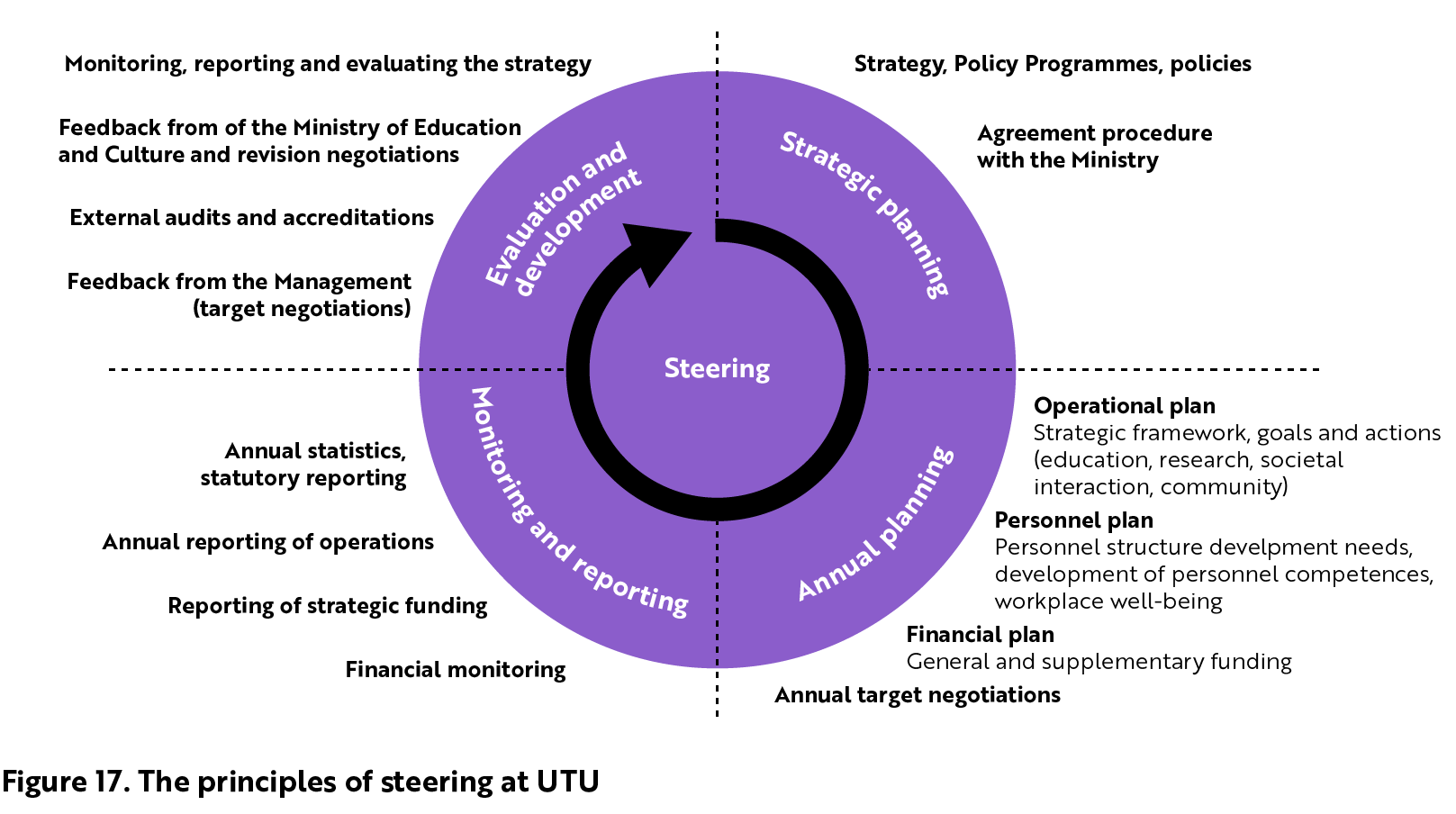
Maintaining a common knowledge base is an important part of strategic and quality management. The produced and analysed knowledge includes internal and external data and information (Figure 18). With this knowledge, UTU intends to ensure an increase in the quality, efficiency and effectiveness of its operations, focusing on supporting decision-making and management.
The importance of strategic foresight work is recognised and this work is supported by a newly established development project in knowledge-based management organised in the Strategic Planning unit. The Vice Rector for partnerships and strategic engagement acts as the chair of the steering group for this project.
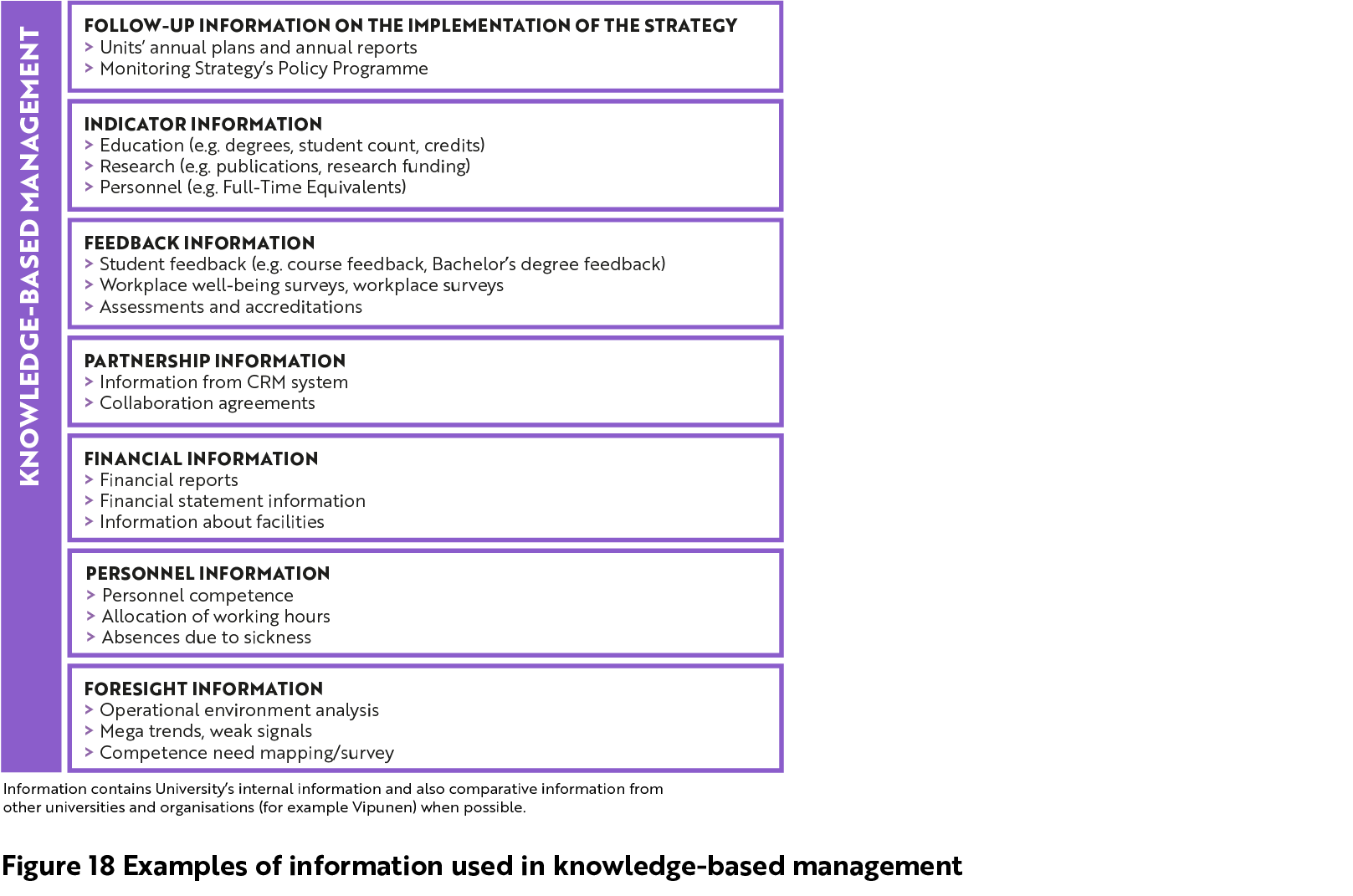
The UTU Community is actively involved in the strategy process among other steering processes which supports the link between the everyday work and the UTU Strategy. The onboarding for the new members of UTU includes introduction to the strategy process and quality work (onboarding roadmap available on the intranet).
